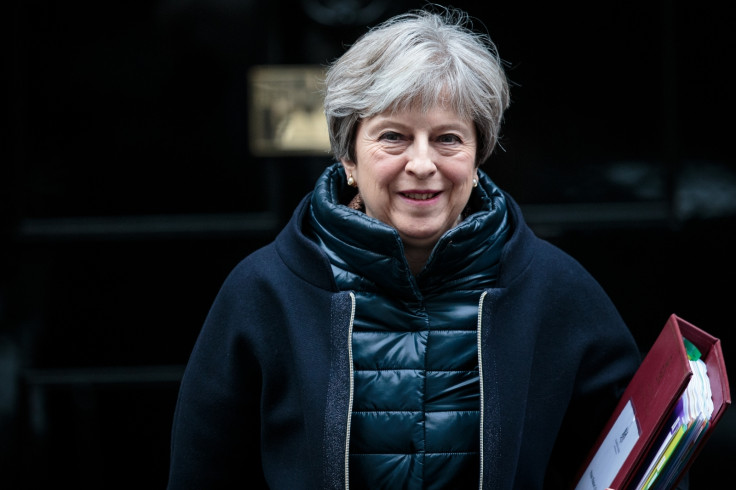UK bitcoin crackdown: Regulation being 'very seriously' looked at says Theresa May
"I think it's something that we do need to look at," the PM said in Davos, Switzerland.

Prime minister Theresa May said in an interview at the World Economic Forum on Thursday (25 January) that cryptocurrency regulation in the UK is being "very seriously" looked at by authorities and urged global tech and social media firms to embrace "social responsibility."
"I think [with] cryptocurrency like bitcoin we should be looking at these very seriously, precisely because of the way they can be used – particularly by criminals," May said.
"So that is something that has been increasingly developing," the prime minister continued. "I think it's something that we do need to look at."
In an interview with news outlet Bloomberg ahead of a keynote address, the PM said that the UK is attempting to combat the spread of child pornography, cybercrime and terrorist material online.
She said that an international approach is needed and appealed to leaders: "Let's work together."
Bitcoin, a form of virtual currency, has spiked in value over the past 12 months, at one point reaching $19,000 per coin. It is traded online and built upon a ledger technology known as a blockchain.
"Regulation in the UK may not necessarily be a bad thing for the digital asset economy: government regulation is a legitimising force," said Kevin Murcko, CEO of crypto-exchange CoinMetro.
"As different nations move to regulate cryptocurrencies in different ways, the short-term impact on the markets will be outweighed by the longer-term stability afforded by consumer protections and the elimination of fraudulent entities and practices," he continued.
"Compliance with an established regulatory framework, if done right, could lead to wider mainstream adoption of cryptocurrencies and greater stability in emerging markets."
Last year, it emerged the UK was considering the tightening of laws around cryptocurrency. Experts warned that the system can be abused for money laundering and tax evasion.
The Guardian reported that plans were being finalised that would see traders having to disclose their identities to the government. South Korea has since enforced a similar law.
On 3 December, House of Commons Treasury select committee member and Labour MP John Mann told The Telegraph that changes were needed to stay up-to-date with technology.
"These new forms of exchange are expanding rapidly and we've got to make sure we don't get left behind – that's particularly important in terms of money laundering, terrorism or pure theft," he explained at the time. "It would be timely to have a proper look at what this means."























